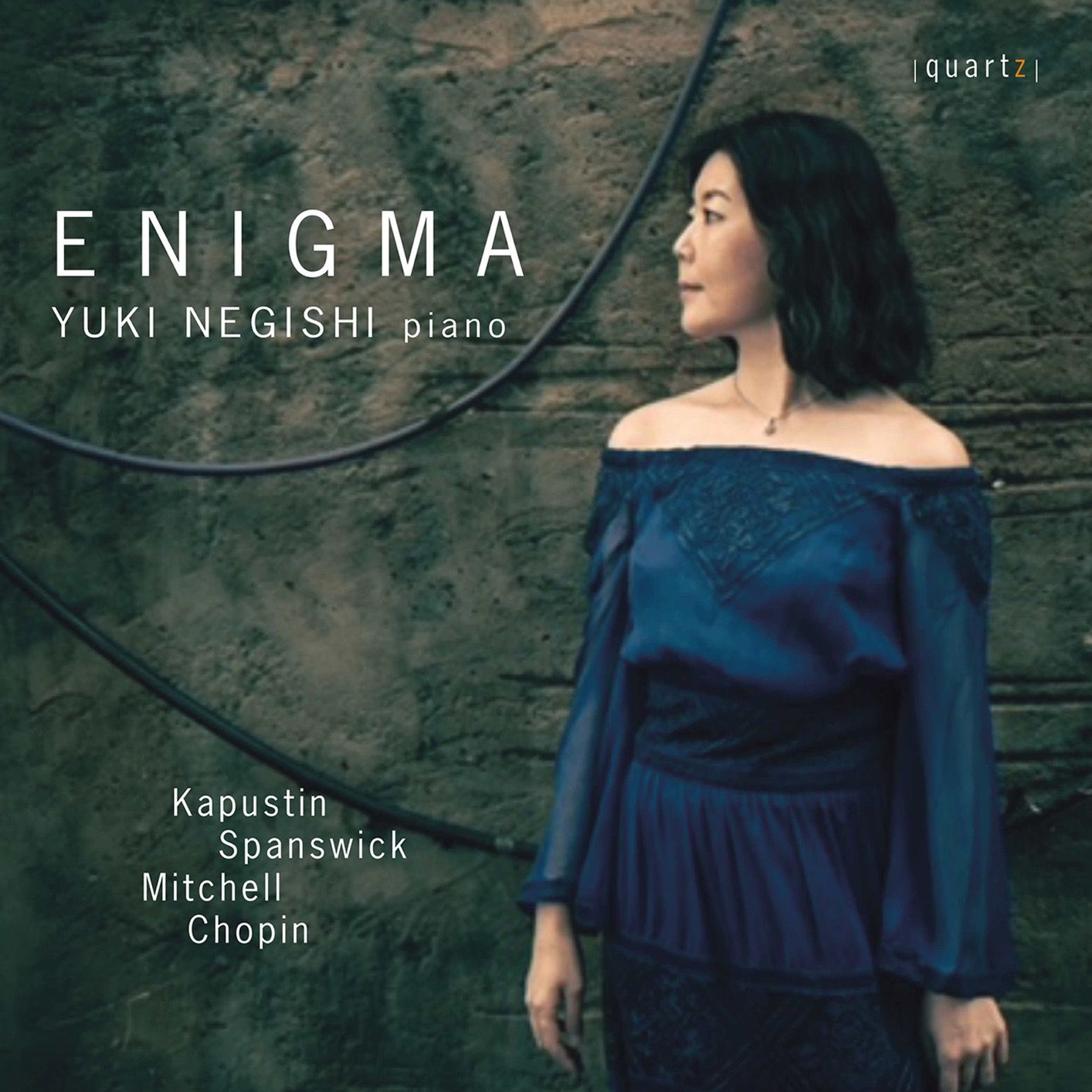Enigma: Jazz meets Classical
The disc is beaufullly recorded, but it is Nigishi's innate musicality that allows the music to shine - very strongly recommended

This is, amazingly, Yuki Negishi's debut album. Once you hear her, you'll understand my use of the word ‘amazing’: her disc justaposes Bill Evans and Chopin, finds a midway in the music of Nikolai Kapustin and introduces music by two of Negishi's contemporaries, Robert Mitchell and Melanie Spanswick (both of these last are World Premiere recordings; the Spanswick was written especially for this pianist). All of this in performances of the utmost integrity. Here is a pianist who uses a superlative technique to project performances that glow with an inner light of understanding.
Nikolai Kapustin (1937-2020) was a composer whose music expertly straddled classical and jazz, as we can hear from the first movement of his First Sonata, fluidly and beautifully played by Negishi here:
Negishi is particularly impressive in the volatile finale, a sort of jazzy Scriabin:
Interestingly Robert Mitchell, who also writes the booklet notes for the Scriabin as well as contributing a piece himself, finds echoes of Bill Evans in the Largo, along with Gershwin:
With its continual feeling of searching for something just out of grasp, no wonder Kapustin called thsi sonata, “Sonata-Fantasie”.
Melanie Spanwick's short piece Enigma, from which the disc takes its name, was composed in February 2019. A short essay on the resonance of the piano, it is intended to refer, in mood, to a tragic (unnamed) love affair. The left-hand part is intricately patterned, in homage to Negishi's talent in this area. It's a beautiful piece, well worth exploring, and Negishi's performance is warm and compelling - she is a clear story-teller. Listen to the evocation of storm-clouds in the affair (achieved via that left-hand virtuosity):
Robert Mitchell's own Our Hearts Dance The Infinite (As The Giant Paya Blooms) refers to the infrequent blossoming of the plant of the title, the Giant Paya. This is a left-hand only piece, gentle, beautiful, almost Impressionist, its floating quality presumably a reflection of the word “infinite” in the title:
Interesting that Negishi waits until now to introduce the familiar, and how brilliantly she does so. In performing a piece that is intimitely related to the natural world before it (the Mitchell), how impressive is it that Chopin's Berceuse seems to grow organically from Mitchell's ending?. Negishi's performance of this first Chopin piece of the programme is a miracle of delicacy and clarity: her pedalling is perfectly judged so we hear every note unsmudged and yet all of the atmosphere is there.
Negishi's Chopin Third Sonata is positively elemental in its first movement:
Despite a fine Funeral March, it is the finale that impresses the most - we're back to that elemental aspect, here what Cortot calles the wind howling around the gravestones. This is transcendental pianism - a true Presto, as Chopin requested:
Originally an improvisation to conclude the recording sessions for the album Everybody Digs Bill Evans (1958), Peace Piece has a left-hand that seems to refer back to the Chopin Berceuse we heard earlier, within a French Impressionist haze and with occasional nods to Messiaen. Negishi's performance is mesmeric:
The disc is beaufullly recorded, too, but it is Negishi's innate musicality that allows the music to shine - very strongly recommended.
Enigma (Yuki Negishi) Amazon link